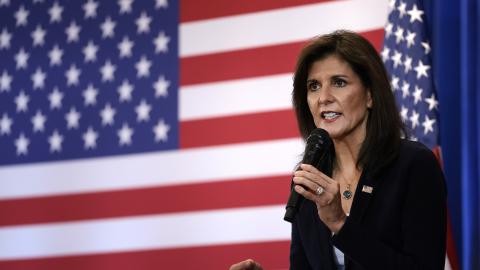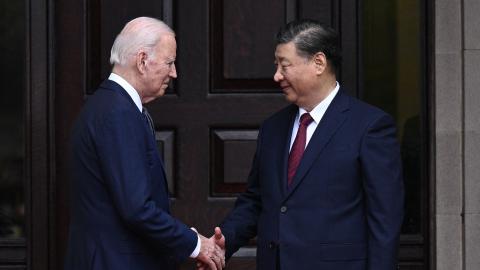Amid a presidency beset by failures of deterrence—in Afghanistan, Ukraine, and the Middle East—the Biden administration’s China policy has stood out as a relative bright spot. The administration has strengthened U.S. alliances in Asia, restricted Chinese access to critical U.S. technologies, and endorsed the bipartisan mood for competition. Yet the administration is squandering these early gains by falling into a familiar trap: prioritizing a short-term thaw with China’s leaders at the expense of a long-term victory over their malevolent strategy. The Biden team’s policy of “managing competition” with Beijing risks emphasizing processes over outcomes, bilateral stability at the expense of global security, and diplomatic initiatives that aim for cooperation but generate only complacency.
The United States shouldn’t manage the competition with China; it should win it. Beijing is pursuing a raft of global initiatives designed to disintegrate the West and usher in an antidemocratic order. It is underwriting expansionist dictatorships in Russia, Iran, North Korea, and Venezuela. It has more than doubled its nuclear arsenal since 2020 and is building up its conventional forces faster than any country has since World War II. These actions show that China isn’t aiming for a stalemate. Neither should America.














